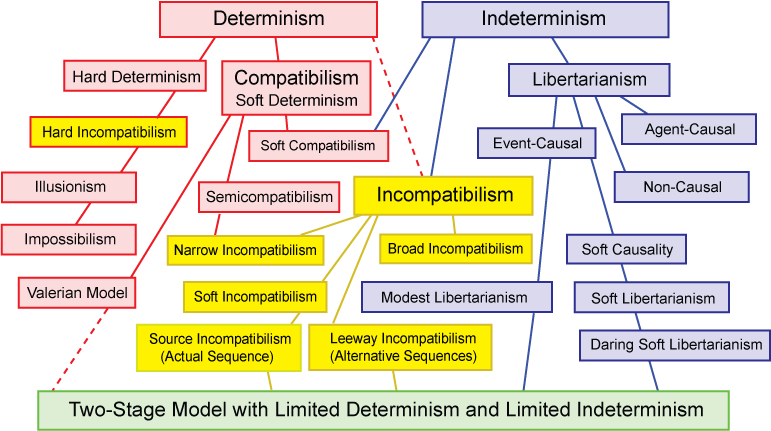

"The model of decision making I am proposing, has the following feature: when we are faced with an important decision, a consideration-generator whose output is to some degree undetermined produces a series of considerations, some of which may of course be immediately rejected as irrelevant by the agent (consciously or unconsciously). Those considerations that are selected by the agent as having a more than negligible bearing on the decision then figure in a reasoning process, and if the agent is in the main reasonable, those considerations ultimately serve as predictors and explicators of the agent's final decision." (Brainstorms, p.295)While microscopic quantum events are powerful enough to deny strict determinism, the magnitude of these events is generally so small, especially for large macroscopic objects, that the world is still overwhelmingly deterministic. We call this "adequate determinism." Although random quantum mechanical events break the strictly deterministic causal chain, which has just one possible future, random events are probable causes for later events. They start new causal chains with unpredictable futures. They are said to be causa sui. They need not be the direct cause of human actions, which would make the actions random, but simply provide alternative possibilities for willed actions.
 Chapter 3.7 - The Ergod Chapter 3.7 - The Ergod |
Chapter 4.2 - The History of Free Will  |
 Part Three - Value Part Three - Value |
Part Five - Problems  |